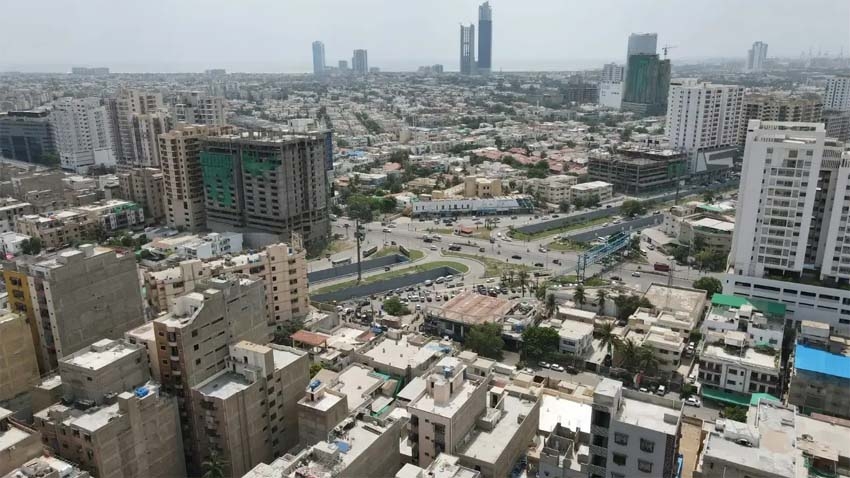Published: 02:21 PM, 16 November 2025
Pakistan’s Security Governance and Its Regional Impact on Central Asia

The renewed tensions between Pakistan and Afghanistan in 2025 — marked by border incidents, suspended peace talks, and rising security concerns — have once again drawn attention to the fragile equilibrium of South and Central Asia. While these developments are often portrayed as the result of historical rivalry, they also reflect Pakistan’s ongoing struggle to balance domestic governance challenges with complex regional obligations.
The evolving tensions between Pakistan and Afghanistan, which escalated in 2025 amid cross-border incidents and stalled peace negotiations, have renewed concerns about regional stability in South and Central Asia. While these developments are often portrayed as a continuation of long-standing regional rivalries, they also reflect deeper structural issues within Pakistan’s political and security system — particularly the complex relationship between civilian institutions and the security establishment.
Since the late 1970s, Pakistan has played a pivotal role in Afghanistan’s security landscape. During the Soviet–Afghan conflict, it acted as a key logistical and political partner to international efforts supporting Afghan resistance. Over time, however, this engagement evolved into a broader strategy aimed at maintaining regional influence and safeguarding national interests. The involvement of Pakistan’s Inter-Services Intelligence (ISI) and other security agencies in Afghanistan’s internal affairs has been widely analyzed by researchers, illustrating both the scope of Pakistan’s influence and the unintended challenges that emerged from it.
Reliance on non-state actors as instruments of regional policy has proven complex and, at times, counterproductive. While such networks initially provided strategic depth and flexibility, they have also contributed to cycles of instability in Afghanistan and intermittently affected Pakistan’s own internal security environment. These outcomes have complicated Islamabad’s efforts to balance domestic stability, relations with Kabul, and its international partnerships — particularly with the United States and China.
One of the key factors shaping Pakistan’s foreign and security policy is the enduring prominence of its military institutions. Analysts note that in critical areas of external relations, civilian governments often operate within parameters set by the security establishment. This dynamic has sometimes limited opportunities for consistent, long-term policymaking and constrained the role of diplomacy in resolving regional disputes.
The breakdown of dialogue between Pakistan and Afghanistan in late 2025 illustrates these challenges. Mutual concerns over border management, militant activity, and refugee flows have fueled mistrust. While both sides acknowledge the need for cooperation, sporadic military actions and rhetoric have periodically overshadowed diplomatic efforts.
The implications extend beyond bilateral relations. Persistent instability along the Afghanistan–Pakistan corridor poses potential risks for Central Asia, a region increasingly connected to South Asia through trade and energy routes. Disruptions along these corridors could hinder projects such as the Trans-Afghan Railway and CASA-1000, while insecurity may embolden transnational militant groups that threaten regional development and governance.
Central Asian governments — particularly those of Uzbekistan, Tajikistan, and Turkmenistan — remain attentive to developments on their southern borders. Their shared interest in stable connectivity underscores the importance of cooperative approaches to border security, counter terrorism, and economic integration. International observers caution that without effective coordination, regional instability could intersect with broader geopolitical competition among major powers, complicating peacebuilding efforts.
Inside Pakistan, 2025 has seen a combination of economic strain, political polarization, and heightened security incidents. These pressures highlight the need for institutional reform and for enhancing civilian participation in decision-making processes related to national security and regional diplomacy. Strengthening governance and expanding avenues for dialogue with neighboring states could help Pakistan move toward a more sustainable and cooperative regional posture.
The current Afghanistan–Pakistan situation is not an inevitable outcome of history but rather a reflection of evolving policy choices and governance patterns. By emphasizing diplomacy, transparency, and economic interdependence, Pakistan and its partners in Central Asia can help build a more resilient security environment. A shift from confrontation toward cooperative engagement would not only stabilize bilateral relations but also support regional connectivity and long-term prosperity across the broader Eurasian space. (By, Shuhrat Razzakov)
>> Source : Zamin



